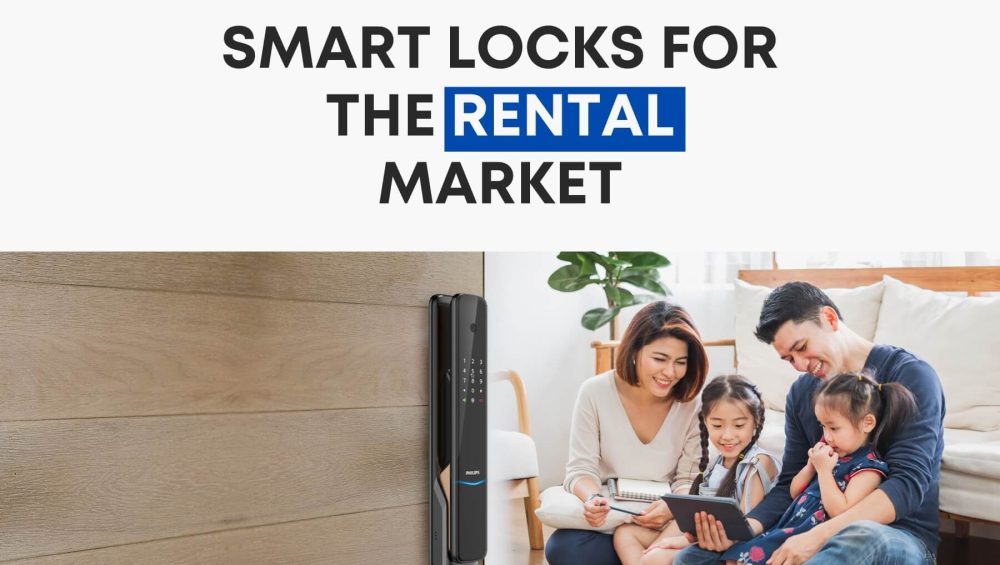The rental market in the UAE is evolving rapidly, driven by a new generation of landlords and tenants who value convenience, flexibility, and security. As property management becomes increasingly digital, smart locks are emerging as one of the most practical and forward-thinking investments for rental properties.
From luxury apartments in Dubai Marina to short-term holiday villas in Abu Dhabi, landlords are finding that keyless technology doesn’t just secure their assets — it simplifies operations and enhances tenant satisfaction.
How Smart Locks Transform Property Management
Smart locks replace the need for physical keys with PIN codes, RFID cards, mobile apps, or biometrics, offering both landlords and tenants complete control over property access.
Through platforms like the Oji Smart App or the Philips Home App, property owners can manage entry remotely, assign digital keys, and monitor access history in real time — all from their smartphones.
For landlords, this means fewer headaches about key collection and lost copies. For tenants, it means seamless, secure living without worrying about misplaced keys or unauthorized duplication.
Benefits for Landlords
1. Simplified Tenant Management
Landlords can issue temporary PIN codes or RFID cards to new tenants instantly — no need to physically meet or exchange keys. When the lease ends, they simply deactivate the access credentials remotely.
Models such as the Philips EasyKey 9300 and Oji VersaLock Command 6WFR make it easy to reset codes or add users through their companion apps, ensuring quick turnover between tenants.
2. Enhanced Property Security
Smart locks provide real-time notifications when someone enters or exits the property. This gives landlords visibility and peace of mind — especially for short-term rentals or managed villas.
The Oji EVO Smart Lock, for example, logs every entry attempt and can send alerts for unauthorized access or tampering.
3. Reduced Maintenance and Costs
Traditional locks require rekeying every time a tenant moves out. With smart locks, landlords save both time and money, as codes and permissions can be changed instantly without any hardware replacement.
4. Remote Control and Access Sharing
Landlords who manage multiple units can use smart lock dashboards to monitor several properties at once. Access can be shared with agents, cleaners, or maintenance teams using time-bound digital keys that expire automatically.
Benefits for Tenants
1. Convenience and Keyless Living
Tenants can unlock their homes via fingerprint, PIN, RFID, or smartphone app. No more waiting for spare keys or worrying about lockouts.
2. Improved Safety and Privacy
Modern smart locks, such as the Philips DDL603E-5HWS, use AES encryption and tamper alarms, ensuring only authorized users can access the property.
3. Seamless Move-In and Move-Out Experience
Tenants moving into short-term or serviced apartments appreciate digital entry, which allows immediate access upon arrival. Likewise, when moving out, access can be disabled remotely without coordination delays.
4. Integration with Smart Home Systems
Many UAE tenants now expect smart home capabilities. Locks like the Philips DDL720-MVP-17HWS or Oji HandleLock Elite Plus 5WVD integrate with home automation apps, creating a modern, tech-forward living experience.
Addressing Common Concerns
While some landlords hesitate to adopt new technology, the transition to smart locks is simpler than it seems.
- Power reliability: Most smart locks use low-energy batteries that last up to a year, with USB emergency power options.
- Security: End-to-end encryption ensures digital keys cannot be cloned or intercepted.
- Maintenance: Local distributors like OjiSmart.com provide full installation, warranty, and technical support throughout the UAE.
The Bigger Picture: Smart Locks and the UAE Rental Market
As Dubai and Abu Dhabi’s rental sectors become increasingly competitive, offering smart lock access is quickly becoming a value differentiator for property listings. Tenants now associate digital security with modern, high-quality homes — and landlords see higher demand and shorter vacancy periods.
Smart locks also make compliance easier for property managers handling Airbnb, holiday homes, and serviced apartments, ensuring controlled guest access without on-site supervision.
With models like the Oji EVO, Oji Amber, and Philips EasyKey 9300, landlords can manage access efficiently while maintaining the modern appeal tenants expect in UAE’s evolving housing market.
Conclusion
Smart locks are more than a security upgrade — they’re reshaping how the UAE’s rental market operates. Landlords gain full control and visibility, while tenants enjoy flexibility, safety, and convenience.
As the UAE continues to embrace digital transformation, adopting smart locks isn’t just a future-forward choice — it’s becoming a rental standard.



